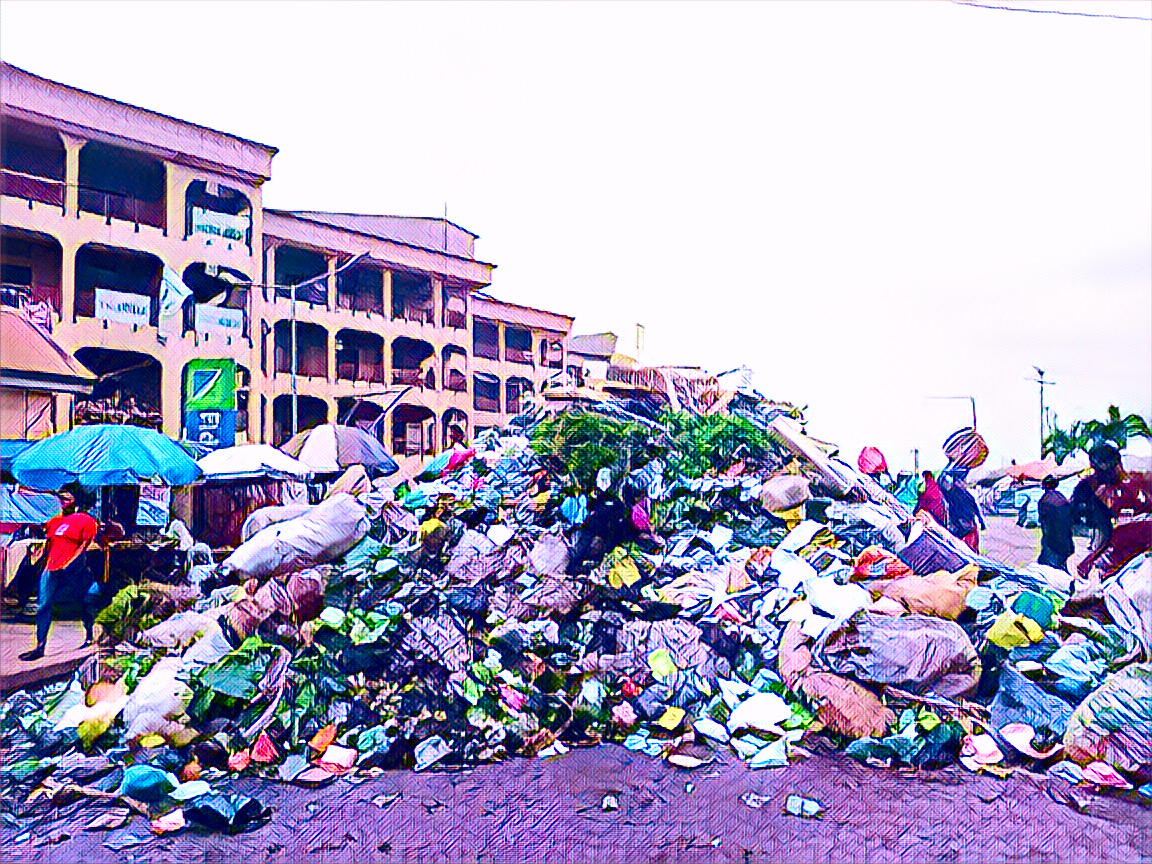The Lagos State Ministry of Environment and Water Resources is taking a hard line on improper waste disposal in markets. On Friday, June 28th, 2024, the ministry issued a strict 48-hour abatement notice to the executives of Oyingbo Market. This decisive action comes after an inspection by the Lagos Waste Management Authority (LWMA) on Wednesday, June 26th, 2024, which uncovered serious violations of waste management regulations at the market.
The notice, titled “Abatement Of Nuisance Notice Under Environmental Sanitation Law 2001,” details the market’s failure to adhere to basic sanitation standards. The document explicitly states that the market has not been “keeping its tenement and its surrounding free from filth, rubbish, refuse or waste of all description and indiscriminate refuse disposal.” This is not an isolated incident. In January 2024, the Lagos State government took similar measures against the Oke-Afa market in Isolo and the Katangua market in Abule Egba, sealing both locations for repeated violations of waste disposal regulations.
Tokunbo Wahab, the Commissioner for the Ministry of Environment and Water Resources, reiterated the government’s unwavering commitment to a clean Lagos. He delivered a clear warning, stating that any market or facility found to be recklessly disposing of waste would face severe sanctions. This crackdown on Oyingbo Market is a significant development and underscores the Lagos State government’s comprehensive efforts to improve sanitation and public health across the city.
Market Response and Potential Impact
The response from Oyingbo Market executives to the abatement notice remains to be seen. With only 48 hours to comply, the market faces a tight deadline to address the identified sanitation issues. This could involve implementing a more efficient waste collection system, designating specific waste disposal areas, and potentially even increasing collaboration with the LWMA for regular waste removal services.
The potential impact of this crackdown extends beyond Oyingbo Market. It sends a strong message to all markets in Lagos that the government is serious about enforcing waste management regulations. This could lead to improved sanitation practices across the board, ultimately benefiting both traders and customers. Additionally, it could encourage markets to invest in more sustainable waste management solutions, such as recycling programs or composting initiatives.
Public Health Concerns and Environmental Initiatives
Improper waste disposal poses significant public health risks. Overflowing garbage creates breeding grounds for disease-carrying insects and rodents. The decomposition of organic waste releases harmful toxins into the air, potentially leading to respiratory problems. By taking action against Oyingbo Market, the Lagos State government is actively working to protect the health and well-being of Lagos residents.
This crackdown on waste management violations aligns with the Lagos State government’s broader environmental initiatives. The state has implemented various programs to promote a cleaner and more sustainable Lagos. These initiatives include tree-planting campaigns, plastic bag bans, and investment in waste-to-energy facilities. The successful resolution of the situation at Oyingbo Market would represent a significant step forward in achieving these environmental goals.
The Lagos State government’s firm stance on waste management serves as a model for other cities in Nigeria and beyond. It highlights the importance of prioritizing public health and environmental protection through robust sanitation regulations and consistent enforcement. As Lagos continues to grow, effective waste management practices will be crucial to ensure a healthy and sustainable future for its residents.
Source: Punch


